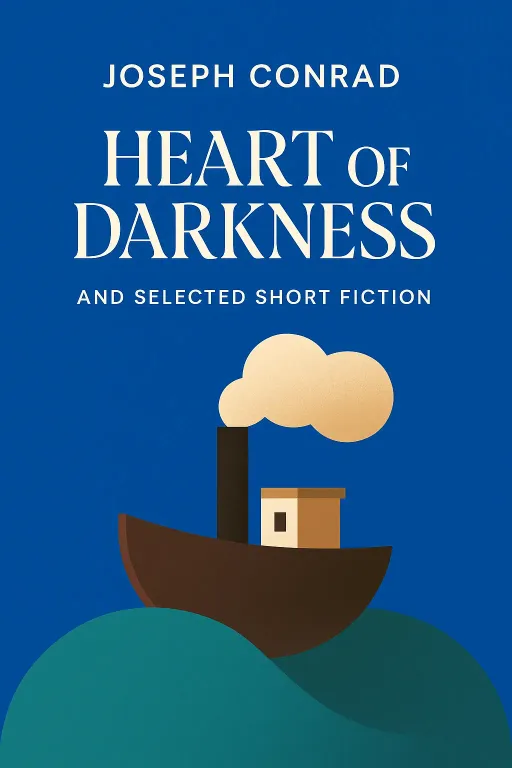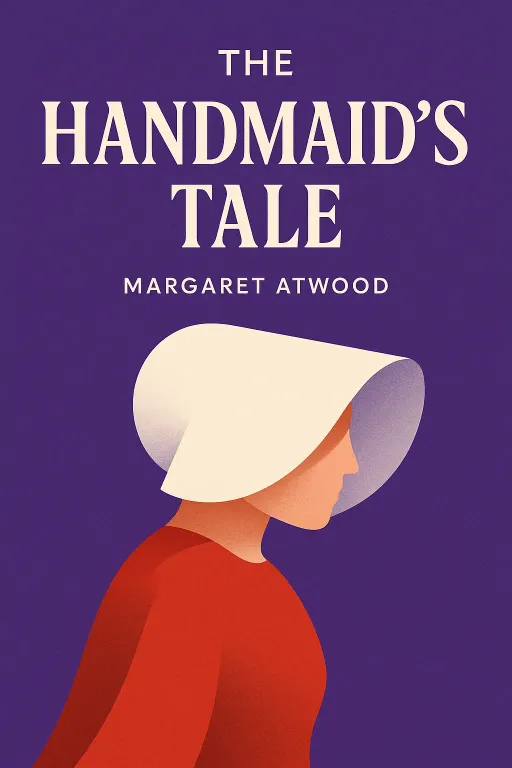
Heart of Darkness and Selected Short Fiction
9 minIntroduction
Narrator: Imagine a man, an emissary of progress and enlightenment, sent deep into the African jungle. He is a poet, a painter, a brilliant mind meant to bring light to the so-called "dark places" of the earth. Yet, when his rescuers finally find him, they discover his station is decorated with a horrifying sight: human heads impaled on stakes. How does a man of such promise fall into such profound savagery? What darkness did he find in the wilderness, or did he simply unleash a darkness that was within him all along?
This descent into moral oblivion is the central puzzle of Joseph Conrad's seminal work, Heart of Darkness. In this collection, which also includes powerful short stories like "Youth" and "The Secret Sharer," Conrad draws upon his own life as a seaman and an outsider to explore the fragile boundaries between civilization and barbarism, the brutal hypocrisy of colonialism, and the terrifying depths of the human soul.
The Man of Two Worlds
Key Insight 1
Narrator: To understand Conrad’s work, one must first understand the man himself, a figure of profound dualities. Born Józef Teodor Konrad Korzeniowski in Russian-occupied Poland, his early life was defined by political turmoil and tragedy. His parents were nationalist activists exiled for their opposition to Russian rule, and both died from tuberculosis, leaving him an orphan. This experience of oppression gave him a lifelong skepticism of grand imperial projects.
Yet, this Polish patriot would find his home and his voice in the very heart of another empire. After a tumultuous youth that included a twenty-year maritime career, he became a naturalized British subject and, most remarkably, one of the greatest prose stylists in his third language, English. Virginia Woolf described him as a "compound of two men," and Conrad himself used the term "homo duplex" or "double man." This double vision—as a Pole and a Briton, a seaman and a writer, an insider and an outsider—is the engine of his fiction. It allowed him to see the world from multiple perspectives, questioning the loyalties, moral codes, and identities that others took for granted.
The Sea as a Forge for Character
Key Insight 2
Narrator: Before Conrad wrote about the darkness in the hearts of men, he wrote about the trials of men's hearts against the sea. His maritime career was not just a source of exotic settings; it was a crucible that tested human endurance and revealed character. This is powerfully illustrated in the story "Youth," a thinly veiled account of his own disastrous voyage on a ship called the Palestine.
In the story, a young officer named Marlow signs on to the ship Judea, an old, dilapidated vessel carrying a cargo of coal. The voyage is cursed from the start, plagued by gales, collisions, and endless repairs. The ultimate test comes when the coal cargo spontaneously combusts, and the crew must fight a losing battle against a fire raging in the ship's hold. The ship is eventually blown apart, and the crew escapes in small lifeboats. For Marlow, this harrowing experience isn't a failure. It is the essence of youth: a glorious, romantic struggle against impossible odds. He reflects that the best time in life was "when we were young at sea; young and had nothing, on the sea that gives nothing, except hard knocks—and sometimes a chance to feel your strength." For Conrad, the sea provides the ultimate test, stripping away pretense and revealing the core of a person's being.
The Corrupting Influence of the Wilderness
Key Insight 3
Narrator: Conrad's most famous work, Heart of Darkness, is a direct result of his most traumatic experience: a four-month journey up the Congo River. He went to Africa as a steamboat captain for a Belgian trading company, during the brutal reign of King Leopold II. Under the guise of a humanitarian mission, Leopold had turned the Congo Free State into his personal slave-labor camp, responsible for the deaths of an estimated ten million people in the ruthless pursuit of ivory and rubber.
In the novella, Marlow’s journey upriver is a journey back in time, "traveling back to the earliest beginnings of the world." The wilderness is an overwhelming, primordial force that seems to whisper secrets to those who are isolated within it. It is here that Marlow hears of Kurtz, the company's star agent, a man of great intellect and supposed high ideals. But as Marlow gets closer, he discovers the horrifying truth. Kurtz, freed from the restraints of European society, has become a demigod to the local tribes, ruling through terror and indulging in "unspeakable rites." His compound is adorned with the heads of "rebels." The wilderness did not put the darkness in Kurtz; it simply allowed the hollowness at his core to be filled by primal, savage impulses. His famous last words, "The horror! The horror!," are a final, terrifying judgment on his own soul and the entire colonial enterprise.
The Tragedy of the Alienated Outsider
Key Insight 4
Narrator: While Heart of Darkness critiques the grand, violent machinery of imperialism, Conrad also explored a more intimate form of darkness: the xenophobia and fear of the "other" within so-called civilized society. The short story "Amy Foster" is a heartbreaking examination of this theme, reflecting Conrad's own feelings of being an outsider in England.
The story follows Yanko Goorall, a Slavic immigrant who is the sole survivor of a shipwreck off the English coast. He washes ashore, speaking no English, and is immediately met with suspicion and cruelty by the locals, who see him as a dangerous madman. Only one person, the simple and compassionate Amy Foster, shows him kindness. They eventually marry, but the cultural chasm between them proves too wide. When Yanko falls ill with a fever and begins deliriously speaking in his native tongue, Amy’s ingrained fear of his strangeness overwhelms her love. She flees with their child, abandoning him. Yanko dies, not from his illness, but from what the narrator calls "the supreme disaster of loneliness and despair." The story is a powerful critique of a society that fails to show empathy, demonstrating that a lack of understanding can be as fatal as any disease.
The Confrontation with the Secret Self
Key Insight 5
Narrator: Conrad was fascinated by the psychological double, the idea that every person has a hidden, secret self. This is the central theme of "The Secret Sharer." The story is told by a young, inexperienced captain who, on his first command, feels like a stranger on his own ship. One night, he discovers a naked man clinging to the side of the vessel. The man, Leggatt, is the first mate from another ship and is a fugitive, having killed a mutinous crewman during a storm.
The captain feels an immediate, uncanny connection to Leggatt, seeing him as his "double" or "other self." In a profound act of rebellion against convention and duty, the captain decides to hide Leggatt in his own cabin, risking his ship, his crew, and his career. The presence of this secret sharer creates an intense psychological strain, making the captain feel as if he has a "dual working of my mind distracted me almost to the point of insanity." The story culminates in a moment of extreme risk, where the captain sails his ship dangerously close to an island to allow Leggatt to escape to freedom. In saving his double, the captain proves his own command and becomes whole, finally at peace with himself and his authority. The story suggests that true self-knowledge requires confronting and integrating the hidden, darker parts of our own nature.
Conclusion
Narrator: Joseph Conrad’s work is a relentless journey into the gray areas of the human experience. His stories refuse to offer simple answers, instead forcing us to confront uncomfortable truths about ourselves and our societies. The single most important takeaway from his writing is the profound fragility of civilization. The moral codes, laws, and ideals we build are a thin veneer, easily stripped away by greed, fear, or the isolation of the wilderness, revealing the potential for darkness that lies within us all.
Conrad's legacy is complex and debated—particularly the charge of racism leveled against Heart of Darkness by critics like Chinua Achebe. Yet, its power is undeniable, influencing works like the film Apocalypse Now and forcing generations of readers to ask a challenging question: When you are stripped of all external authority and social restraint, what is left to guide you? What is at the core of your own heart?









